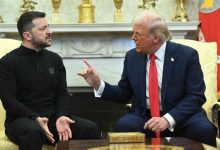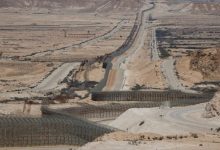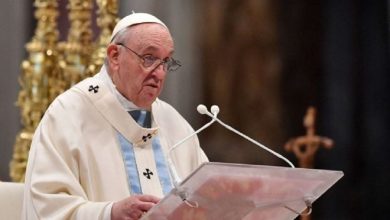Trump Signals Shift in U.S. Syria Policy Amid Turkish-Israeli Tensions and Post-Assad Landscape
In a surprising pivot, Trump hints at U.S. mediation in Syria and praises Erdoğan’s role, as Washington reassesses its stance on Syria’s transitional leadership and regional power dynamics.
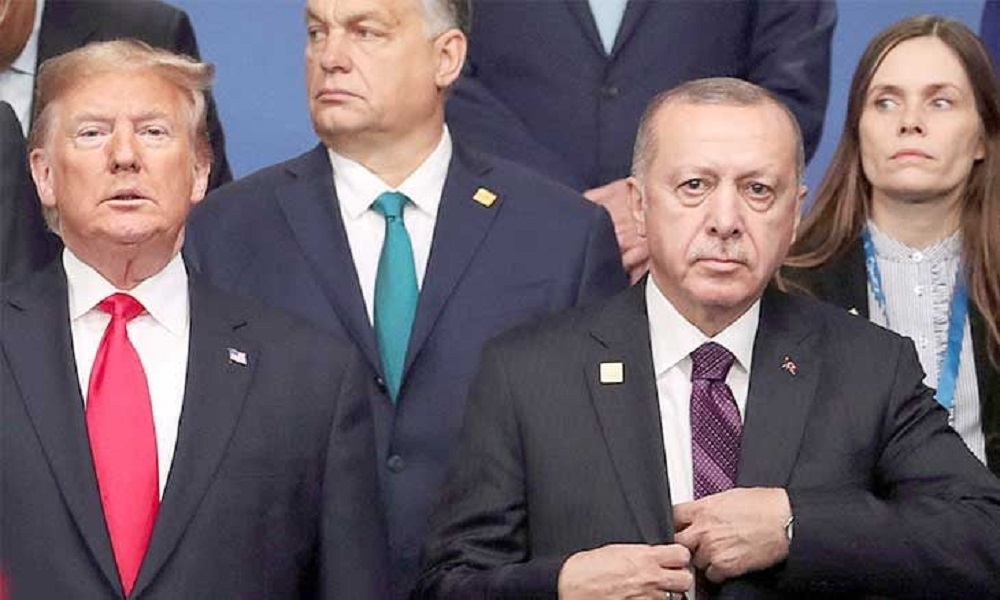
Watan-Whatever the interpretations of the U.S. State Department’s decision to downgrade the staffing level of the Syrian mission to the United Nations may be, even the minimum standards of legal, diplomatic, and political logic require acknowledging that the move reflects yet another concrete sign of confusion, inconsistency, and shifting stances—tinged at times with disarray—within the White House’s official position toward post-Assad Syria. And this confusion pertains to the overall new Syrian context following the collapse of the “Corrective Movement” regime, rather than to the transitional administration or its president in particular.
This state of ambiguity had already emerged in the final days of President Joe Biden’s administration, although the brief time between December 8, 2024, and the inauguration of President Donald Trump was insufficient for White House officials, advisers, and experts to formulate a clear approach. Complicating matters further was the rise of Hay’at Tahrir al-Sham dominating the scene as the Assad era closed—a development that came as a rapid, unexpected victory, defying many of the cautious assessments usually employed by U.S. administrations when adopting at least a provisional or emergency policy stance.
Although Trump is known for making impulsive remarks, even on highly sensitive issues (such as his “Gaza Riviera” proposal—somewhere between a tasteless joke, ethnic cleansing, and an outright war crime), his statements about Syria in the context of potential Turkish-Israeli tensions suggest this was not mere impulsiveness. Especially since he was speaking from the Oval Office, with Israeli Prime Minister Benjamin Netanyahu—hastily summoned to Washington—seated beside him.
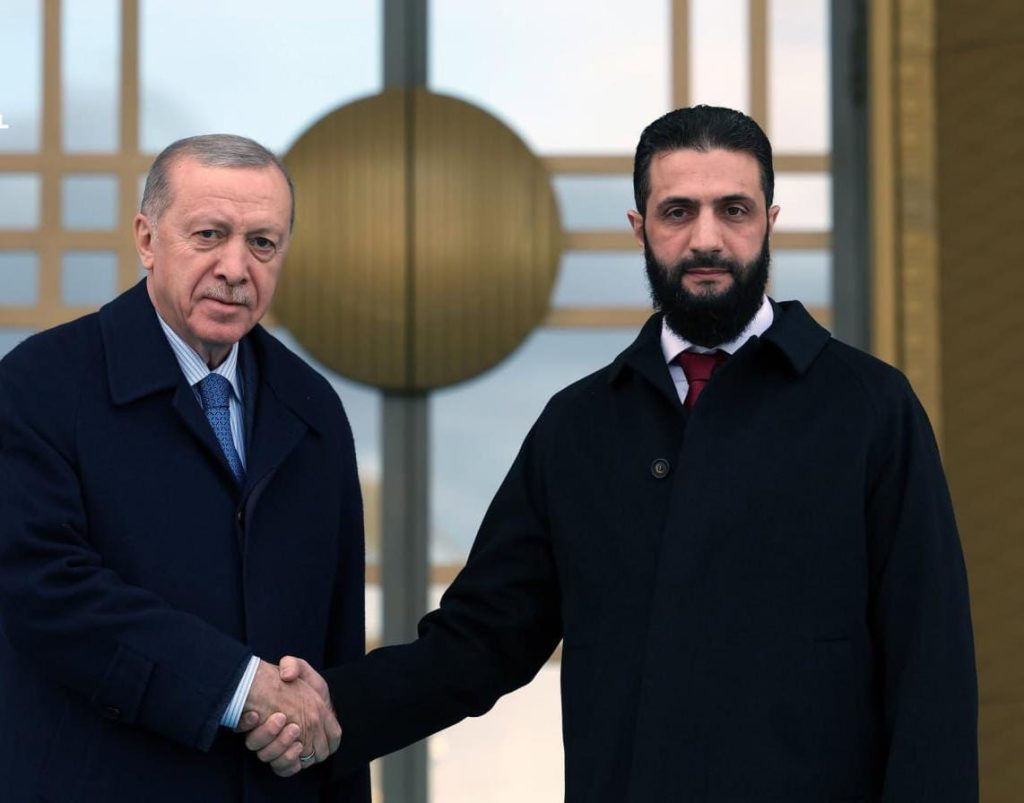
One may begin with a seemingly minor detail: the question posed by Israeli journalist Lisa Rosovsky of Haaretz, asking about Turkey’s claims of contributing to stability in Syria, and whether Trump believed Turkey’s influence could make the country more peaceful or, on the contrary, worsen the situation. The significance of this question lies in what it reveals: serious Israeli concerns about the potential empowerment of Turkey in Syria, particularly militarily. It is also notable that the question came from a journalist representing a newspaper not typically aligned with Netanyahu’s government.
Did this question merit Trump’s extensive response? Including:
-
Expressing personal admiration for Turkish President Erdoğan,
-
Praising him as someone who “did what no one else could,”
-
Congratulating Erdoğan on his “takeover” of Syria, something “no one has done in 2,000 years,”
-
Offering U.S. mediation—“not a problem,” so long as “Bibi” (Netanyahu) remains reasonable?
Not exactly—except in the context of a broader strategy. Trump appeared to use the opportunity to conclude a series of U.S.-Israeli exchanges on Iran, Gaza, and trade tariffs by unexpectedly pivoting to Syria (not just Turkish-Israeli relations). This shift coincided with another surprise: the White House’s intention to engage in direct talks with Tehran—contrary to Netanyahu’s hopes for joint U.S.-Israeli strikes on Iran’s nuclear and missile facilities.
Rosovsky’s question may have triggered such a detailed reply also because Trump had been recently briefed on the geopolitical and security landscape, emphasizing the need for a renewed U.S. approach to Syria—an approach that breaks from the inertia of Trump’s first term, Biden’s tenure, and even what remains of Obama’s Syria policy during the Arab Spring. This new approach might involve Turkey, especially given Ankara’s success in maintaining a decade-long balancing act in Syria amid overlapping Iranian, Russian, and Israeli interests—while backing armed Syrian opposition and managing its war with the PKK.
Although Iranian and Russian military, political, and ideological presences in Syria have waned following Assad’s fall, the war on Gaza, and the Russian invasion of Ukraine, Israeli, Turkish, and American occupations persist and are expanding—through Israeli incursions in the Golan, Hauran, and Damascus airport attacks, for instance.
In light of Trump’s remarks, one reading suggests that his proposed mediation is implicitly linked to a broader power-sharing arrangement over spheres of influence—especially given his close ties to both Erdoğan and Netanyahu, and the ongoing U.S. military presence of 900 troops in Syria, a topic of ongoing debate.
So far, despite mixed or absent signals, the emerging American approach toward Syria diverges notably from the views of National Intelligence Director Tulsi Gabbard, who is known for her sympathetic stance toward Bashar al-Assad. This shift may prove decisive. It’s also likely that Washington’s Arab allies—particularly Saudi Arabia, Egypt, Jordan, and Kuwait—who have welcomed Syria’s new authorities in their own ways, will encourage Trump to revise the rigid stance held by some in his previous administration toward Syria’s transitional leadership. That view was essentially confined to a narrow and outdated narrative: that the new Syrian leadership stems from al-Qaeda or “terrorism,” and lacks control over all Syrian territory—an approach that fails to meet even the minimum thresholds of realpolitik.

It is also likely that the upcoming visit of Syrian figure Farouq al-Sharaa to Turkey—coinciding not coincidentally with a visit to the UAE—will clarify the trajectory of relations between the new Syria and Turkey, now the region’s dominant regional and NATO power, not just under Erdoğan. These relations, in turn, will influence the parallel regional power, Israel, where the rules of engagement must now change after 15 years of Netanyahu’s unchecked dominance in the region.
Trump’s White House, including both its sharpest minds and its simplest operators, understands well that Ankara’s ties with Moscow were never a rigid “Catholic marriage.” They were instead a carefully calibrated balance of converging and diverging interests. This allowed Russian President Vladimir Putin, not long ago, to travel directly from Damascus to Istanbul to inaugurate a gas pipeline. They surely also remember the Turkish-Russian power-sharing agreement forged after Turkey shot down a Russian Su-24 fighter jet in fall 2015.
It may not be long before this unfolding tension yields outcomes that extend Trump’s surprises even further—fulfilling, in a sense, the wisdom of Imam al-Shafi’i:”Nights, though silent, carry the weight of unborn marvels.”

